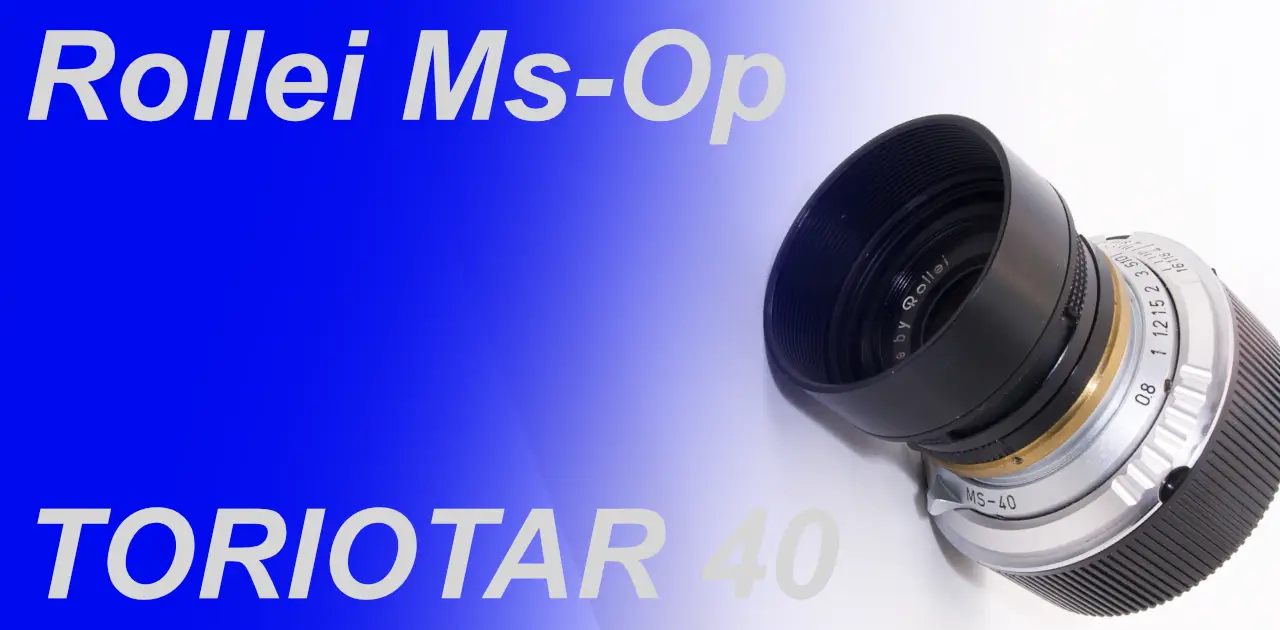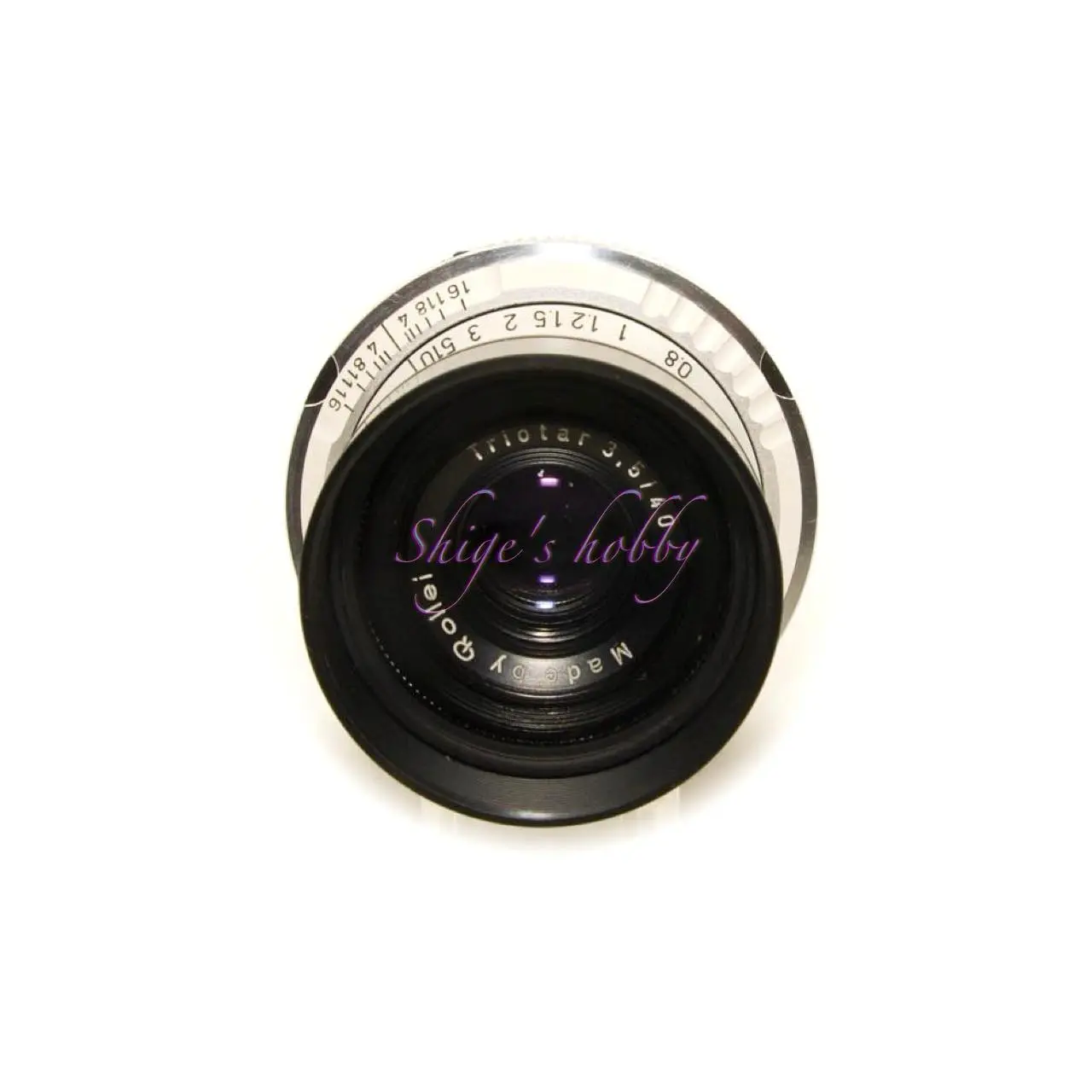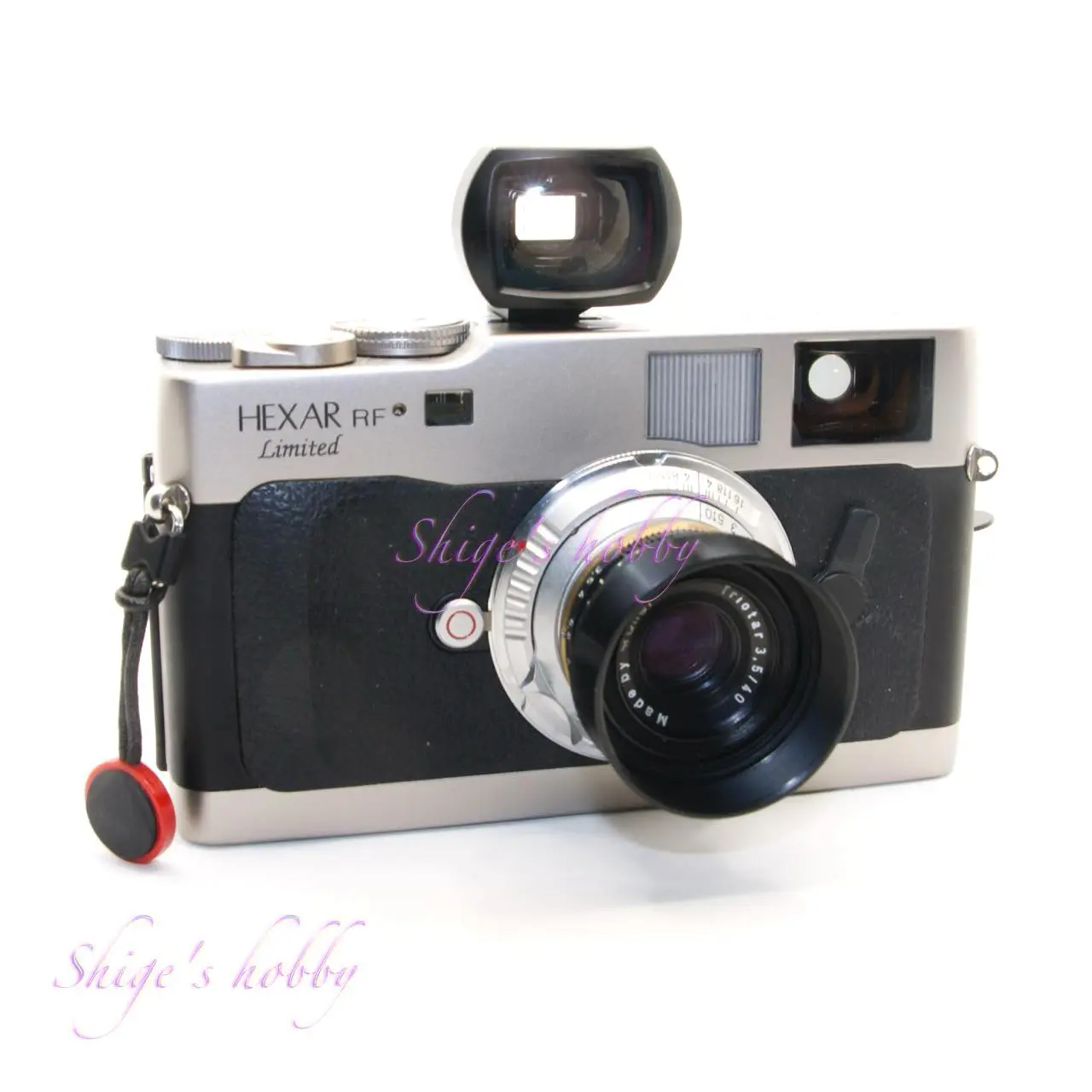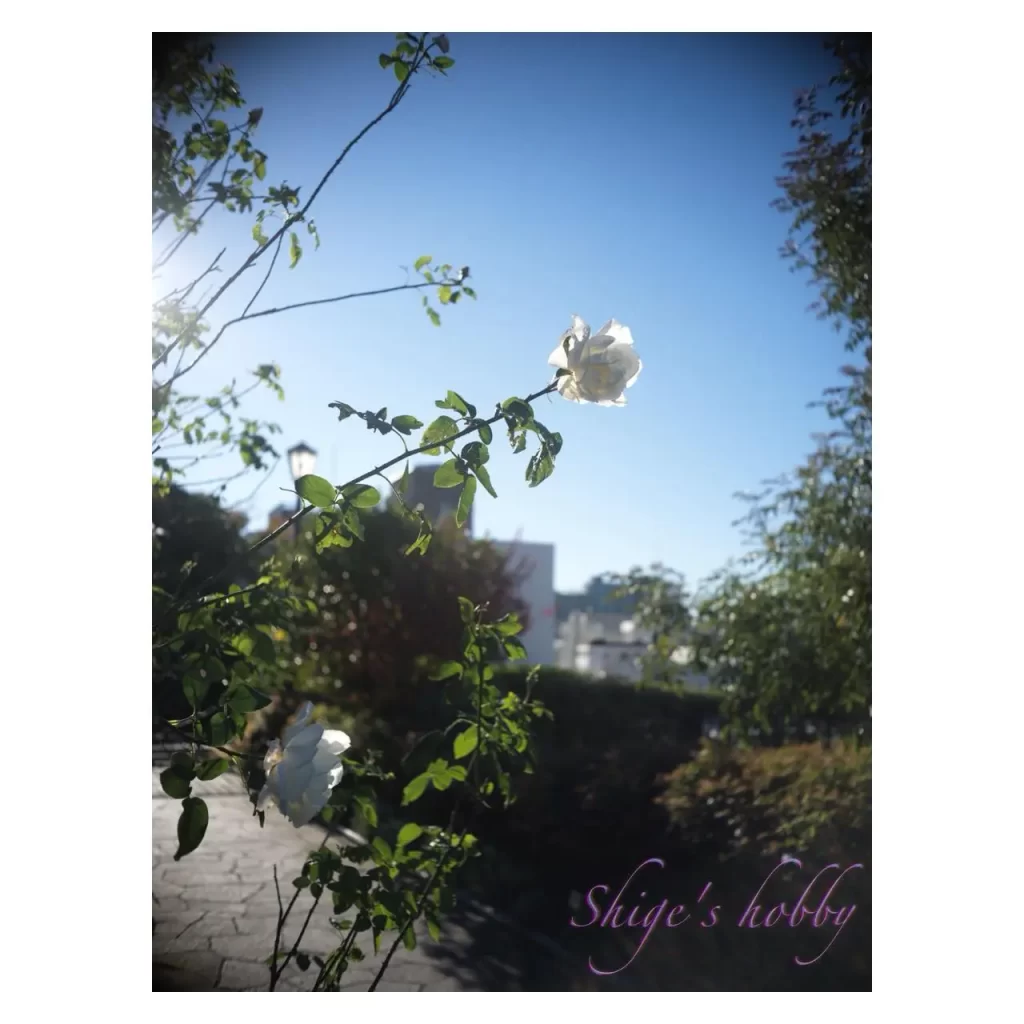M modified lens Rollei TORIOTAR 40mm

A review and photo examples of the TORIOTAR 40mm, a lens that was converted from a Rollei 35B to an M mount
- Please see the disclaimer regarding advertising here.
- Italicized links in the text are advertisement links that take you to other sites.
Table of contents

Gallery
- KONICA HEXAR-RF +LOMO CHROME 100 and LOMO NEGA 800
Review


1.Overview
The Ms-optics Triotar 40mm is a modified lens made by taking the lens of the compact film camera Rollei B35 (35B) and C35 and attaching it to the M-mount helicoid MS-40 made by Ms-optics.
The M-mount helicoid MS-40 is a common helicoid for lenses with a focal length of around 40mm, and is adjusted during the modification to allow focusing by double image matching in conjunction with the rangefinder of an M-type rangefinder camera at a focal length of 40mm.
The minimum shooting distance of the modified lens is 0.8m, and the original six-blade aperture blades are used as they are.
The lens barrel is also the same as the original barrel, fixed at the infinity position, and is combined with a helicoid for focusing. The helicoid MS-40 is designed to be versatile enough to convert various lenses into M mounts.
When the lens is attached to an M-type Leica compatible camera, the viewfinder frame will display a 35mm frame. For a focal length of 40mm, use an external 40mm finder, or be mindful of the inside of the 35mm finder frame.
This lens appears to have been modified a long time ago, with a silver barrel, fixed original helicoid, and a directly attached hood.
Recently modified lenses have a black helicoid and some lenses are designed so that the lens’s original helicoid also works, in which case close-up photography is possible with a mirrorless camera. With mirrorless cameras, close-up photography is similarly possible if you obtain a mount adapter with an auxiliary helicoid, so even with old fixed models this is not a big problem.
2.Usability
The TORIOTAR 40mm Ms-Optics modified lens is a simple triplet lens, and although the image quality in the peripheral areas is slightly lower, it produces clear images.
When used with a mirrorless camera, close-up photography is also possible by using a mount adapter with an auxiliary helicoid.
As long as it is used with a SONY α7Sii or SONY α NEX-7, it produces images that are problem-free even with digital cameras. Like other triplet lenses, it has a wide image circle, and even when shooting with a 44mm x 33mm sensor of a medium-format digital camera, the vignetting is only in a small area around the periphery, so it is quite usable with a 3:2 44mm x 30mm.
Even in backlit conditions, it does not produce any suspicious light, as in the example below, so it can be used with confidence. The lens I own has a fixed hood, and it is possible that this effect is affecting the depiction of backlit conditions. However, since the hood cannot be removed, I cannot confirm the depiction without the hood.

With the Rollei 35 series of film cameras, focusing is done by eye, so shooting often involves narrowing the aperture, but this lens, modified to a Leica M mount by Ms-optics, allows accurate focusing from wide open aperture using the double image overlap method used in rangefinder cameras.
The operation is the same as with modified lenses from Ms-optics, and the helicoid operates smoothly. Also, although there is no click feeling from the aperture ring, the aperture ring is located away from the focus ring, so it will not move accidentally while shooting.
3.Summary
In conclusion, to sum up the TORIOTAR 40mm Ms-Optics conversion, although it is a lens installed in a cheaper version of the Rollei 35, the depiction of the center produced by the three lenses of the TORIOTAR is clear.
Even when used with a 44 x 33mm medium format sensor, there is only slight vignetting, and since it is outside the 35mm full-frame sensor, the image quality of the peripheral areas is a little questionable, but it is usable enough in some situations.
Among the M-mount lenses converted from lenses of several compact cameras that I own, this lens has good depiction.
Specification and Competitor
The compact film camera Rollei 35 series has four types of lenses: Sonnar (five elements in four groups), Tessar (four elements in three groups), Xesnar (four elements in three groups), and Triotar (three elements in three groups). Sonnar is the most luxurious lens, and Triotar is the least expensive. This can be seen from the lens configuration of Triotar, which is three elements in three groups.
Although it is inexpensive, it is true that there are voices that appreciate Triotar, which shows that the lens is a big factor of preference. Rollei film cameras are not that expensive regardless of the lens they are equipped with, and it seems that the cost of modification is higher. It is interesting that they dared to modify this lens to a Leica M mount under those conditions.
Ms-optics does a lot of work converting compact camera lenses into lenses for Leica M-compatible rangefinder cameras. This lens is one of them.
The focal length of 40mm is a major focal length for compact cameras, and it is not too wide or too narrow, so it can be said to be a compromise that allows this lens to be used in all shooting situations.
Since zoom lenses became mainstream for compact cameras, the lens focal lengths of compact cameras equipped with prime lenses have become mainstream at 28mm and 35mm, with 40mm falling out of use.
| Items | TORIOTAR | Sonnar LSM | SUMMARIT | NOKTON | SUMMICRON C |
| Manufacturer | Rollei | Rollei | LEICA | Voigtlander | LEICA |
| Focal length(mm) | 40 | 40 | 40 | 40 | 40 |
| Max aperture | 3.5 | 2.8 | 2.4 | 1.4 | 2 |
| Min aperture | 16 | 22 | 16 | 16 | 16 |
| Aperture balade | 6 | 10 | 12 | 10 | 10 |
| Lens Construction | 3 elements in 3 groups | 5 elements in 4 groups | 6 elements in 4 groups | 7 elements in 6 groups | 6 elements in 4 groups |
| Min distance(m) | 0.8 | 0.7 | 0.8 | 0.7 | 0.8 |
| Lens length(mm) | 39 (including hood) Hood length 12.5 | 30.5 | 21 | 29.7 | 23.5 |
| Lens Max diameter(mm) | 49 | 51 | 49 | 55 | 50 |
| Filter Size(mm) | – | 39 | 37 | 43 | 39 |
| Lens hood | Direct mounting | Special food | Cylindrical screw-in hood | Bayonet hood LH-6 | Trumpet-shaped screw-in hood 12518 |
| Release date | ? | 2002〜2006 | 1995 | 2004 | 1972 |
| Production numbers | ? | ? | 120,000 | – | 54,350- |
| Weight(g) | 103 | 172 | 54 | 175 | 120 |
Reference links
Update history
- 2025.6.25
- 2024.12.9
Affiliate links
- Please see the disclaimer regarding advertising here.
- Italicized links in the text are advertisement links that take you to other sites.
- Leica Lens・Ads by Amazon
- Leica Books・Ads by Amazon
- Ms-optics・Ads by Amazon

Amazon Prime Sale
Leave a Reply